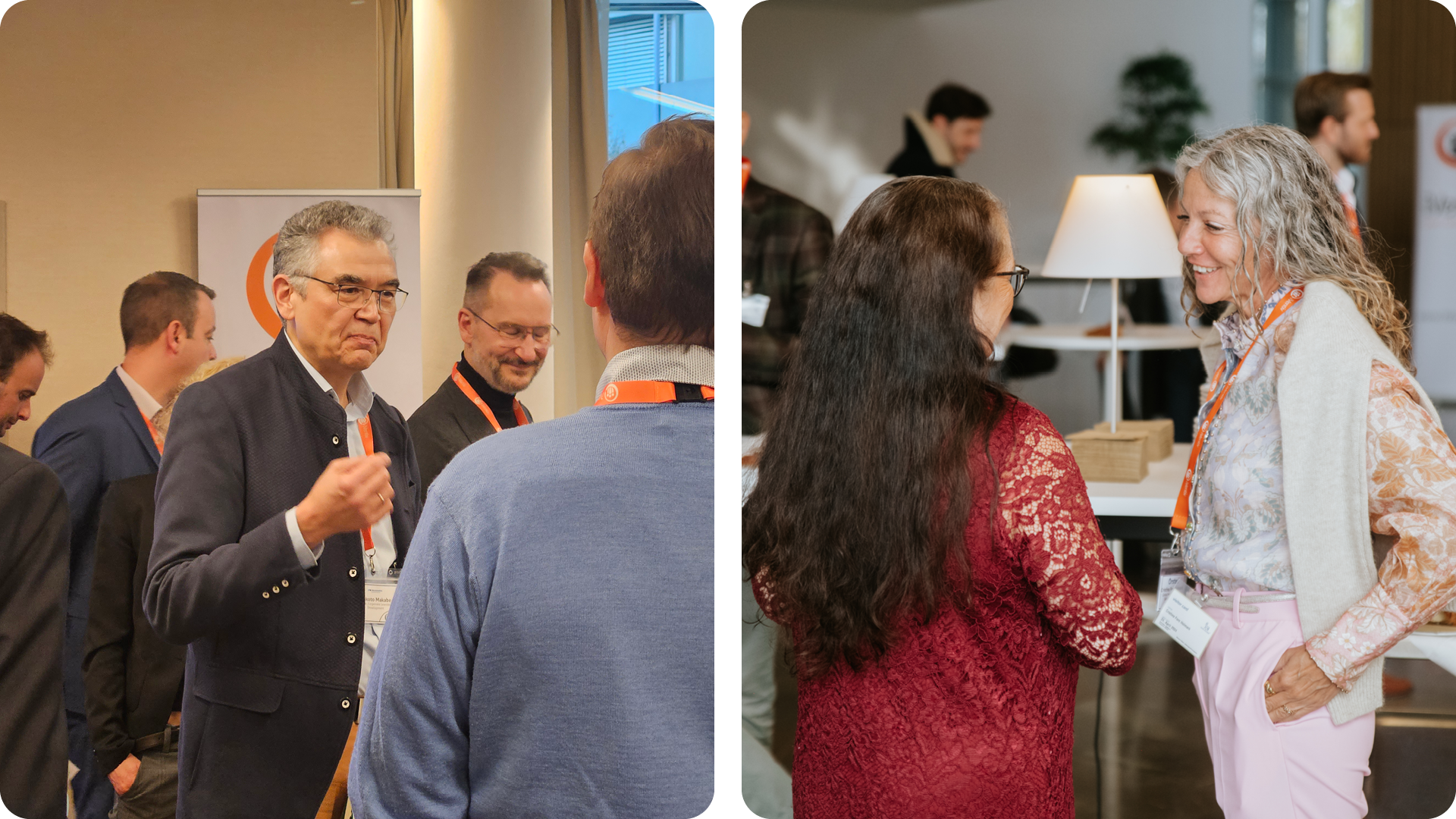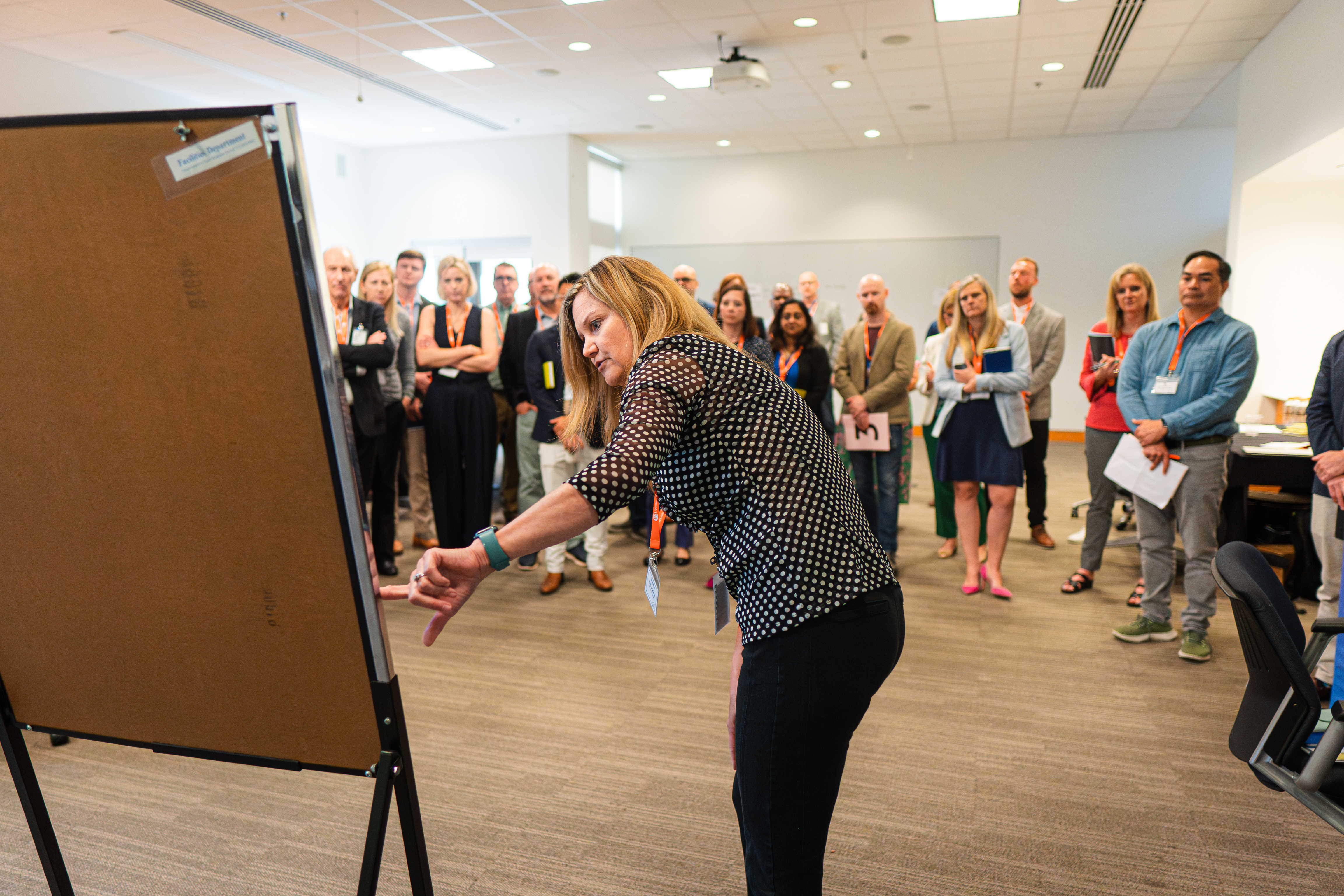Submitted by Kerry Summers on

What is a Customer Education Event?
A customer education event is a forum to bring your clients together in one place—either physically or virtually—to learn, connect, and develop. These events may look different depending on your industry, but the principles remain the same:
Bring customers together
Whether it’s your top-tier clients or a curated group of users, the goal is to connect people who share common challenges or aspirations.
Share insights
Go beyond product features. Offer market intelligence, future trends, and broader thought leadership. Help your customers stay ahead of the curve.
Showcase your thought leadership
Establish your business not just as a service provider, but as a strategic partner.
Cement connection
Customers are more likely to remain loyal to companies they feel connected to. Great events create that emotional and intellectual tie-in.
Customer education events aren't about showcasing how great your business is. Instead, they're about showing how great your customer can be when working with you.
What Makes a Good Customer Education Event?
It’s not enough to simply gather people in a room (or Zoom) and present to them. A great customer education event is intentional, well-designed, and customer-centric.
Here’s five things it is crucial to get right:
1. Have a Clear Objective
Every event must start with the question: what do we want attendees to walk away with and why?
Whether it’s product adoption, client retention, upselling, or brand positioning, define your goal early and ensure every element supports it.
2. Get the Timing and Format Right
Consider your customers’ calendars. Don’t host during peak business periods or major holidays. The right venue also matters; choose a location that’s accessible, well-equipped, and conducive to meaningful conversation, not just flashy entertainment.
3. Curate the Right Audience
The magic happens when attendees feel they are in the right room. Peer alignment is crucial. Group senior leaders with senior leaders, hands-on users with other users. People are more likely to share honestly and build lasting relationships when they feel they’re among equals.
4. Make it Interactive
According to the 70:20:10 learning model, around 70% of learning comes from on-the-job experiences, 20% from social interactions, and only 10% from formal learning. Don’t spend the whole day talking at your attendees. Instead, facilitate workshops, breakouts, and discussions where they can:
- Learn from each other, not just you
- Connect and collaborate on shared challenges
- Develop and exchange best practices
iVentiv’s values of ‘learn, connect, develop’ are the building blocks to what we know make great events. The real value of these sessions comes from what your customers learn from one another, not just what they learn from your product team.
5. Listen Actively
Great events don’t just deliver, they gather. Ask your customers about their current pain points, what’s changing in their world, and how you can better support them. Build in time for feedback and reflection and don’t shy away from negative comments; they often point to your biggest opportunities.
Common Pitfalls (and How to Avoid Them)
Even with the best intentions, many customer education events fall short. Here’s how to sidestep the most common hazards:
Not Listening
If the event is a one-way lecture, you’re missing a golden opportunity to learn from your customers. Don’t make it all about you. Instead, make it a two-way conversation.
Inviting the Wrong People
Mismatched levels, roles, or industries lead to awkward conversations and disengagement. Be strategic in who you invite and why.
Being Too Salesy
Nothing turns customers away faster than a hard sell disguised as a workshop. Education events should be value-first. If you deliver real insight and support, the business will follow naturally.
Prioritising Gimmicks Over Substance
Yes, good food and memorable moments matter. But if your event leans more on popcorn machines and celebrity guests than on relevance and insight, you’ll lose credibility fast.
Poor Cross-Department Coordination
Don’t let customer education sit in a silo. Align across marketing, sales, product, and events teams to ensure consistent messaging and strategic focus. When these departments work together, everyone wins.
Not Collecting Feedback
Always follow up with structured feedback surveys. Find out what worked, what didn’t, and what could be better. Ask not only about the event experience but also about your product and services.
Trying to Do It All In-House
If your team doesn’t have the capability to run a seamless, strategic event, outsource to iVentiv. Bringing in experienced partners like iVentiv will elevate the experience from good to exceptional, and infuse conversations with, real, impactful nuggets of insight.
Leaving It Too Late
Rushed planning leads to poor outcomes. A successful event takes 3–6 months to design, build, and execute. Last-minute decisions will cost you, both in impact and reputation.
A Real-World Example: Microsoft
At iVentiv’s recent bespoke event, Microsoft brought together senior leaders from global enterprise clients to explore the evolving role of AI in the modern workplace. Rather than leading with product demos, the session kicked off with a panel discussion featuring customer voices, followed by roundtable workshops facilitated by industry peers.
The result? A powerful two-day event that not only showcased Microsoft’s thought leadership but also surfaced critical feedback on product roadmaps, new feature ideas, and real-world implementation needs. Participants walked away with new connections, actionable insights, and a deeper understanding of Microsoft’s commitment to their success.
Ready to Run a Great Customer Education Event?
A well-run customer education event isn’t just another line in the marketing budget—it’s a strategic lever to drive retention, loyalty, and brand advocacy. When you make your customers feel heard, understood, and supported, they become not just users, but champions.
At iVentiv, we work with organisations around the world to design and deliver peer-led, insight-driven customer events that genuinely engage the C-Suite. If you're planning your next customer education initiative, let’s talk about how we can support you.
To enquire about iVentiv bespoke events, visit our enquiry page.
Related Resources
- Designing Events for Knowledge Sharing: Practical Techniques
- Solving the Knowledge Silo in Global Learning Teams
- What Makes an Effective Learning and Development Team Event?
- 10 Questions to Ask Before Planning an Internal Event
- Planning Corporate Events For Small Groups: A Complete Guide
- Why Internal Events Often Fail, and How to Fix Them
- How to Engage L&D Teams Through Events
- The Difference Between Team Building and Team Learning
iVentiv and Microsoft - A Bespoke Event Experience











